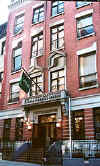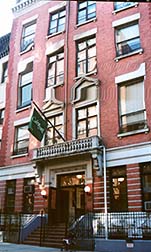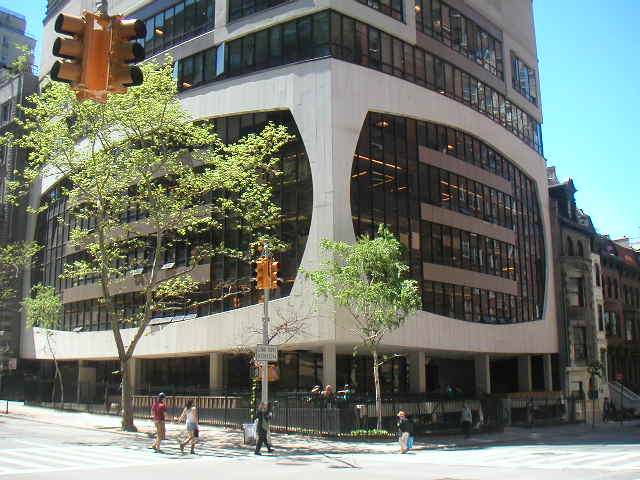|
notes
|
Calhoun is
housed in two locations on Manhattan’s Upper West Side, one for pre-school
through first grades, and the second location for 2nd through 12 grades.
Flanked by Central Park to the east and Riverside Park to the west, the
school is fortunate to have its buildings within walking distance of some of
New York City’s richest cultural resources—including Lincoln Center and the
American Museum of Natural History.
The Robert L. Beir Lower School is a completely renovated, distinguished
five-story townhouse with large, bright classrooms, library, art/woodshop,
indoor recreation room, music room, computer room, outdoor play terrace and
theatre/auditorium.
Calhoun's First 100 Years
On the occasion of Calhoun's Centennial Celebration during the
1996-1997 school year, a commemorative book was published tracing the
school's transformation from The Jacobi School, a small brother-sister
school in a brownstone, through its years as an all-girls high school,
and finally, to its current status as a co-educational, progressive
school for students from pre-school through twelfth grade.
Calhoun's history, as recounted in The Centennial Commemorative Book
and reprinted here, ends during the 1996-97 school year. Fortunately,
that same year marked the debut of Calhoun's first introduction onto
the Internet with its own Web site. So while you enjoy this journey
through the past, we hope to continue adding chapters in the school's
history on this site--celebrating the milestones and the achievements
of our students, and sharing the intellectual and creative excitement
of a unique educational experience.
"It is a constant miracle that a school, like a living organism,
maintains its identity through change. Students and teachers come, stay
for a time and move on. Administrators and staff leave the imprint of
their personalities. Parents and alumnae/i become involved and some
continue their concern for years, as Trustees. Curriculum changes to
meet differing needs. Activities, interests and school events fluctuate
with the individuals who comprise the school. But the essence of the
school, its inner spirit, lives and grows with the changing times."
— Elizabeth Parmelee, Co-Headmistress, 1946–69,
Beatrice S. Cosmey, Co-Headmistress, 1948–69,
Wilhelmina Kraber, Lower School Director, 1958–73,
in an annual report to the Board, 1967–68/1968–69
|


